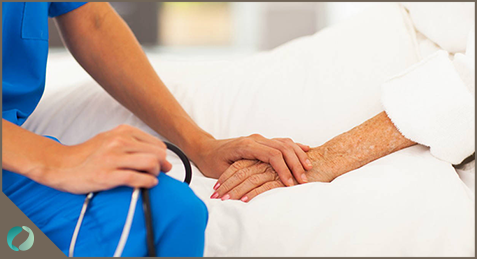Learn About Breast Cancer
Breast cancer is the most common form of cancer among women in India. The National Institute of Cancer Prevention and Research reports that breast cancer accounts for about a quarter of all cancers in women in Indian cities.
“No life is guaranteed. Cancer just makes the uncertainty more apparent.”
–Shruti Sharma Anand, breast cancer survivor
But, as the saying goes, “when the going gets tough, the tough get going.” All breast cancer survivors need you to know that though the battle ahead of you is going to be tough, with a courageous spirit you can get through it all.
Through this article, we at Papillon Hair World aim to give you some understanding of what breast cancer is, so you can understand what you are facing better and the battle becomes a little easier.
Cancer refers to a cluster of diseases that have out of control cell growth in common. To know more about cancer you can visit our article on cancer here.
Cancer that starts in the cells of the breast is breast cancer. These abnormally growing cells usually form a tumor which can be felt as a lump or seen on an X-Ray. Tumours can be benign (non-cancerous) or malignant (cancerous). A tumour is said to be malignant if the cells can grow into and invade the surrounding tissues or spread, that is, metastasize to other parts of the body.
There are different types of breast cancer based on where they start. Breast cancers are mostly carcinomas or cancers that start in the epithelial cells that line tissues and organs like the breast.
Ductal cancers are the most frequently occurring breast cancers. They begin in the ducts that carry milk to the nipples. Ductal Carcinoma In Situ (DCIS) is a very early form of breast cancer where cancer cells are only inside the duct and have not spread to the surrounding breast tissue through the walls. Invasive ductal carcinoma is where the cancer cells invade the breast tissue surrounding the ducts.
Lobular carcinomas are cancers that begin in the glands that produce milk. This form of cancer can be a Lobular Carcinoma In Situ (LCIS) or an Invasive lobular carcinoma. LCIS starts in the glands that make the milk but doesn’t spread through the walls to the surrounding tissues. While it is not cancer, LCIS increases the risk of cancer and women with it should have get mammograms as per the doctor’s recommendations. Invasive lobular carcinoma is when the cancer that has started in the glands has spread via the walls to the surrounding breast tissue.
In rare cases it also presents as Inflammatory Breast Cancer (IBC) where there is no tumour. IBC makes the skin of the breast look red, thick and pitted and feel warm. The breast may also get bigger, tender, harder or itchy in IBC. Very rarely there can also be a sarcoma (cancer that starts in the muscle, fat or connective tissue) or a lymphoma (tumours that develop from lymphocytes) in the breast but they are not really thought of as breast cancer.
If you have been diagnosed with breast cancer, there are two types of treatment options available to you. Local treatment options of breast cancer include surgery and radiation that are used to treat only the cancer and do not affect the rest of the body. Chemotherapy (chemo) and hormone treatment drugs go through the body and are called systemic treatments. Doctors often use both local and systemic treatments to treat breast cancer.
Your treatment plan will depend on a number of factors like your age, the type of cancer, the stage and grade of your breast cancer, other health problems you may have, and your feelings about the side-effects of the treatment you are receiving, like hair loss from chemo. You can read more about hair loss from chemo here and how to tackle it here.
Fighting breast cancer is not a one day task, it’s a journey that can continue for months and sometimes even years. And no other experience can be as colossal as fighting death and emerging victorious. As Neeti Leekha Chhabra, breast cancer survivor and co-founder of Indian Cancer Society’s Uday which addresses the issues of young women with breast cancer, puts it, “I know that our lives have changed for the better. I am leading a healthier life, learning guitar, spending time with my son and enjoying the journey of life without worrying about the destination.”




